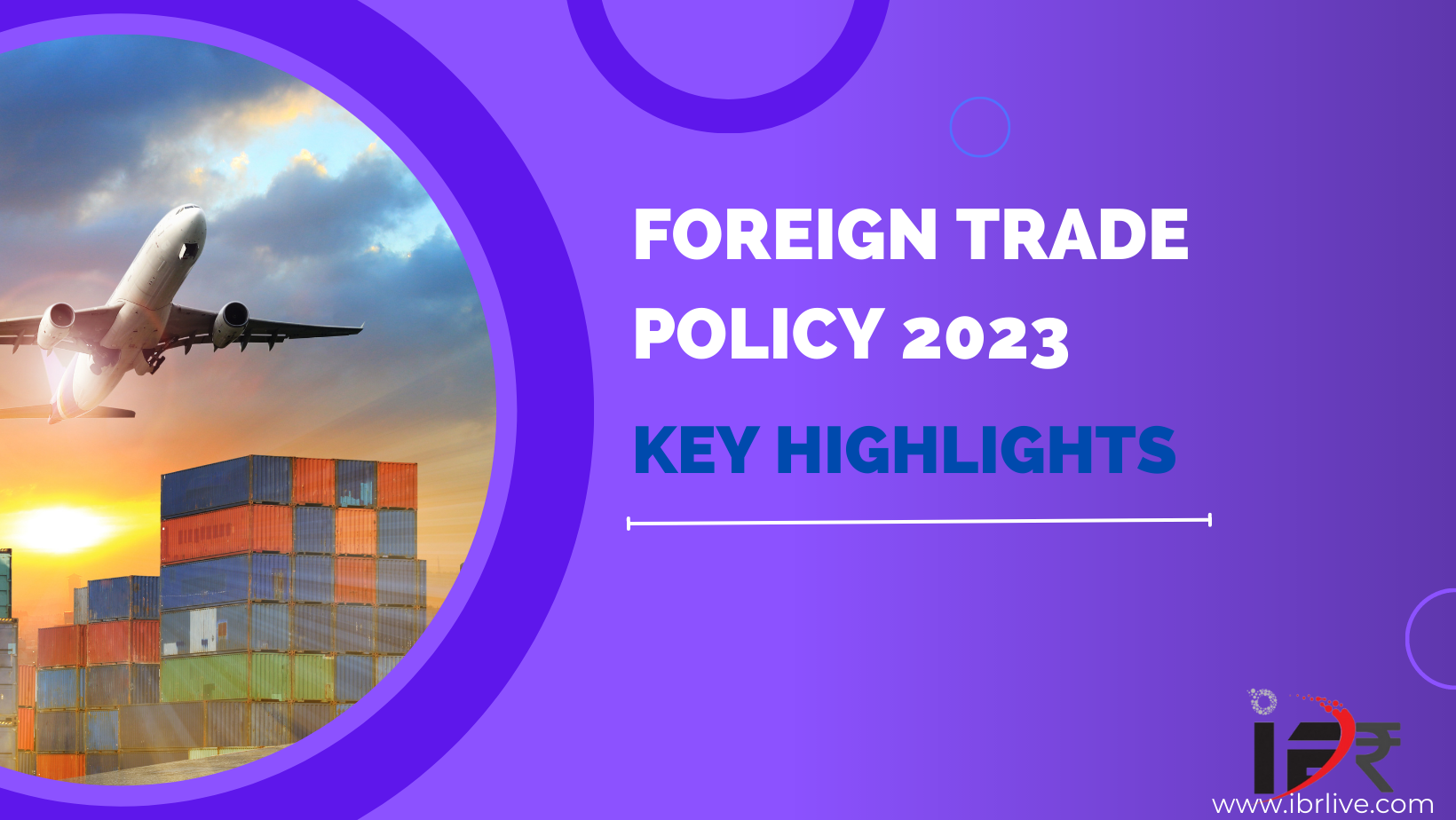The government had received requests from Export Promotion Councils and leading exporters that they should continue with the current Foreign Trade Policy (2015-20), which had been extended from time to time.
The government has always involved all stakeholders in formulating policy. Hence, it was decided to extend the Foreign Trade Policy 2015-20, valid till Sept 30, 2022, for a further period of six months, till 31.03.2023.
On March 31, 2023, Shri Piyush Goyal, the Hon. Minister of Trade and Industry, revealed his proposed foreign policy for the years 2023 to 2028.
The policy is in place as of April 1, 2023, and it remains in place through March 31, 2028.
The new global trade policy’s goal, unveiled in March 2023, is to grow India’s exports to $2 trillion by 2030. Its flexible and open-ended nature allows it to adapt to changing needs.
The policy is built around four pillars: Developing Areas, Export Growth through Collaboration, Incentive to Remission, and Ease of Doing Business.
A one-time amnesty program is introduced in the FTP 2023 to allow exporters to finish up any old outstanding authorizations and start over.
The “Towns of Export Excellence Scheme” and the “Status Holder Scheme,” promotes the recognition of new towns and exporters, respectively.
The policy emphasizes process re-engineering and automation to make doing business easier for exporters and growing sectors, including dual-use high-end technological products under e-commerce export, SCOMET, and merchanting trade from India.
The strategy strongly emphasizes export development and promotion, shifting from an incentive system to one that is facilitating and built on the technological interface and collaborative principles.
Building on prior “convenience initiatives,” the guideline also codifies implementation procedures in a paperless, online world.
Here are the key points of the new foreign trade policy:
- The Foreign Trade Policy (FTP) 2023 is a dynamic, open-ended policy that will accommodate emerging needs.
- The policy aims to increase India’s exports to $2 trillion by 2030.
- The four pillars of FTP 2023 are Incentive to Remission, Export promotion through collaboration, Ease of doing business, and Emerging Areas.
- The policy is based on the continuity of time-tested schemes facilitating exports and a nimble document responsive to the trade requirements.
- The FTP 2023 encourages recognition of new towns through the “Towns of Export Excellence Scheme” and exporters through the “Status Holder Scheme.”
- The new FTP is offering a one-time Amnesty Program for exporters to finish the previous round of pending authorizations and begin anew.
- The strategy strongly emphasizes export development and promotion, shifting from an incentive system to one that facilitates trade and is based on concepts of cooperation and technological interface.
- Exporters are being given more credit by using automatic IT technologies with a risk-management framework for various permissions under the new FTP.
- Regional Offices will now administer duty exemption programs for export manufacturing in a regulated IT system environment, doing away with the necessity for a manual interface.
- The FTP 2023 expands on prior “ease-of-doing-business initiatives” by codifying implementation procedures in an online, paperless environment.
- Due to reduced pay structures and IT-based programs, MSMEs and other groups will find it simpler to enjoy export benefits.
- In addition to the 39 existing towns, four additional towns—Faridabad, Mirzapur, Moradabad, and Varanasi—have been named Towns of Export Excellence (TEE).
Overall, the new FTP aims to promote exports, enhance competitiveness, and promote sustainable development in the Indian economy.


